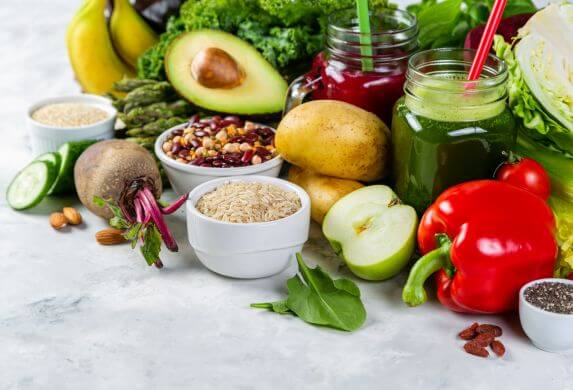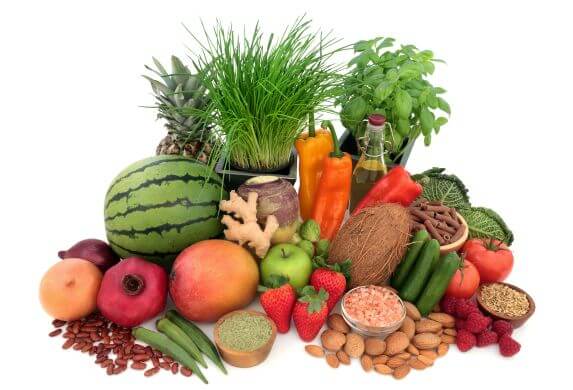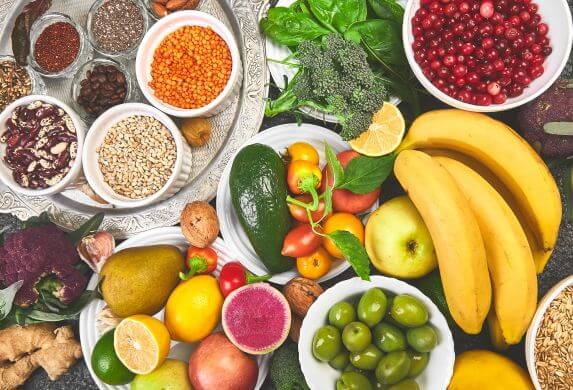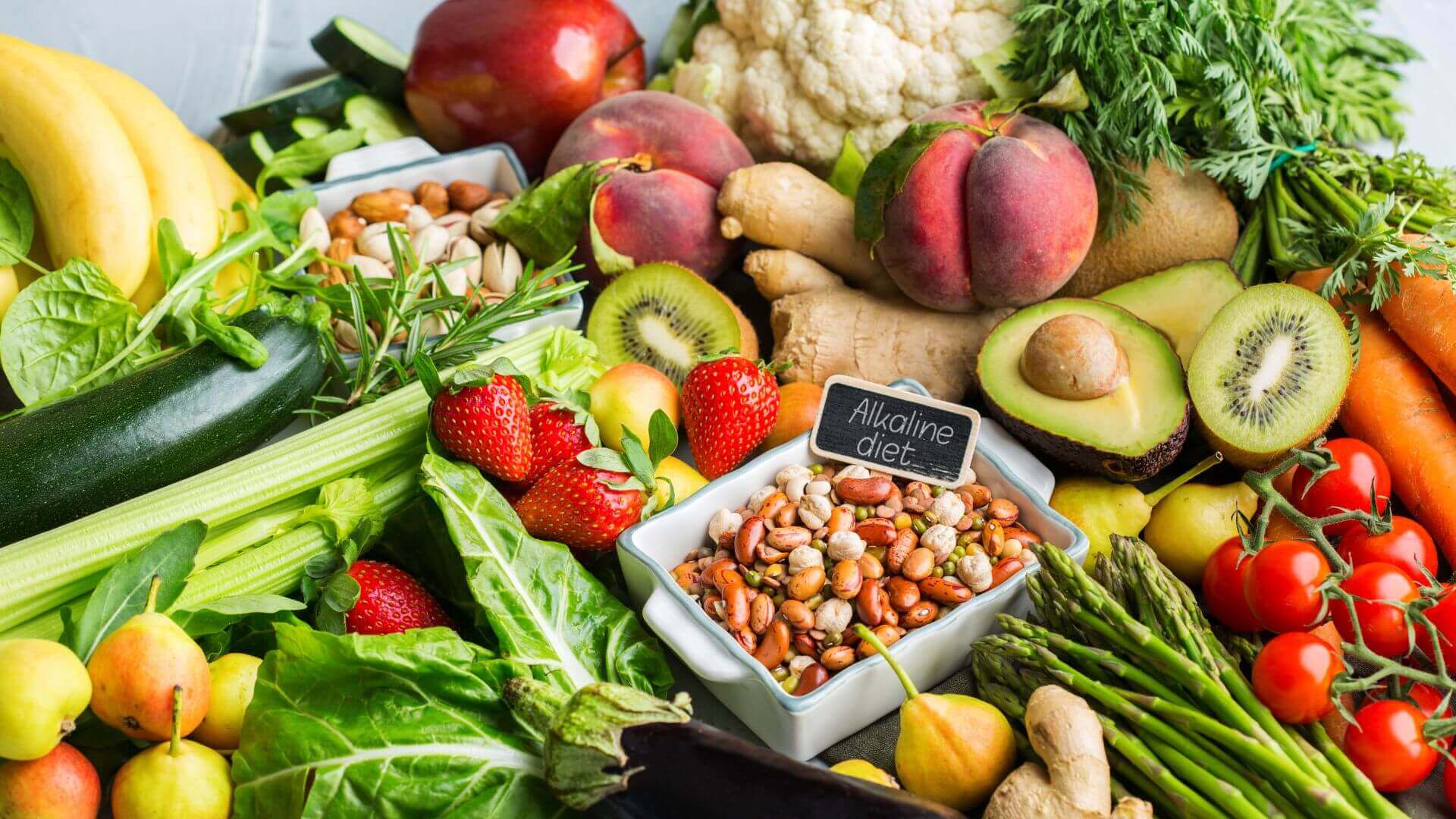Alkaline foods are foods believed to have a pH level greater than 7, making them “alkaline” on the pH scale. In simpler terms:
- The pH scale measures how acidic or alkaline something is.
- Anything below pH 7 is considered “acidic”.
- Anything above pH 7 is considered “alkaline”.
- pH 7 itself is neutral, like pure water.
So, when we talk about “alkaline foods,” we’re referring to foods that, when digested, might have an alkalizing effect on the body’s fluids or leave an alkaline ash. This means they can potentially raise the pH of our body fluids slightly towards the alkaline side.
Examples of alkaline foods include:
- Most fruits and vegetables
- Nuts and seeds like almonds
- Lentils and beans
- Some grains like quinoa
It’s important to note that the idea of eating “alkaline foods” for health benefits is a topic of debate among nutritionists and researchers. Some believe it can help maintain good health, while others say the body’s natural processes regulate pH regardless of the foods we eat. As always, it’s a good idea to consult with a nutrition professional or doctor for personalized advice.

Additional Details: Understanding the Alkaline Diet and pH in the Human Body
Learn more about the alkaline diet and pH in the human body to expand your understanding of alkaline foods and their effect.
The pH Scale and the Human Body
The pH scale ranges from 0 to 14. As mentioned:
- Acidic: pH < 7
- Neutral: pH = 7
- Alkaline (or basic): pH > 7
The human body naturally regulates its pH level, especially in the blood, maintaining it close to a pH of 7.4. This is vital for the proper functioning of cellular processes. It’s important to understand that different parts of the body have different pH levels. For instance, the stomach is highly acidic, with a pH of 1.5 to 3.5, which aids in digestion.
What are Alkaline Foods and Diet?
The alkaline diet, also known as the acid-alkaline diet or alkaline ash diet, is based on the premise that certain foods can affect the pH balance of the body. Here’s a more detailed breakdown:
Alkaline-Forming Foods
These are foods that are believed to produce an alkaline residue or ash after they are digested. They include fruits, vegetables, tofu, nuts, seeds, and legumes.
Acid-Forming Foods
These are foods that supposedly produce an acidic residue or ash. They encompass meats, dairy, most grains, processed foods, sugars, and alcoholic beverages.
Neutral Foods
These don’t significantly affect the body’s acidity or alkalinity. Water is a primary example.
Alkaline Foods, Diet Theories and Controversies
Proponents of the alkaline diet believe that:
- Health Benefits: Consuming more alkaline-forming foods and fewer acid-forming foods can enhance health, reduce the risk of chronic diseases, improve energy levels, and support weight loss.
- Disease Prevention: Some claim that an alkaline diet can prevent diseases like cancer. The theory is that cancer cells thrive in an acidic environment, so by making the body more alkaline, one can potentially reduce cancer risk.
Skeptics argue that:
- Body’s Natural Regulation: The body has robust mechanisms (like respiration and kidney function) to maintain its pH within a narrow range, regardless of diet.
- Lack of Comprehensive Evidence: While there are some studies suggesting benefits to consuming more fruits and vegetables (which are alkaline-forming), it’s not clear if these benefits are directly due to their effect on body pH or other nutritional factors.
Recommendations
While the alkaline diet has its proponents and skeptics, there’s a universal agreement on certain aspects:
- Eat More Fruits and Vegetables: Regardless of the pH argument, fruits and vegetables are rich in essential nutrients and antioxidants that support overall health.
- Limit Processed Foods: Processed foods, often seen as acid-forming, are generally high in sugars, unhealthy fats, and additives which can have other detrimental health effects.
- Individual Needs: Everyone’s nutritional needs are different. What works for one person might not work for another. Consulting with a nutritionist or doctor can provide guidance tailored to individual health goals.
In Summary
Yes, people debate the benefits directly tied to the alkaline nature of foods. However, most accept the underlying principles of consuming a diet rich in whole foods like fruits and vegetables and low in processed foods as beneficial.
So, start making those healthy choices when it comes to what you eat. Prioritizing wholesome, natural foods not only nourishes your body but also boosts your overall well-being.
Every meal is an opportunity to fuel your body with essential nutrients, support your immune system, and maintain optimal energy levels.
By choosing vibrant fruits, leafy greens, lean proteins, and whole grains, you are taking a proactive step towards better health. Therefore, remember the decisions you make about your diet today can have a lasting impact on your future health and quality of life.



